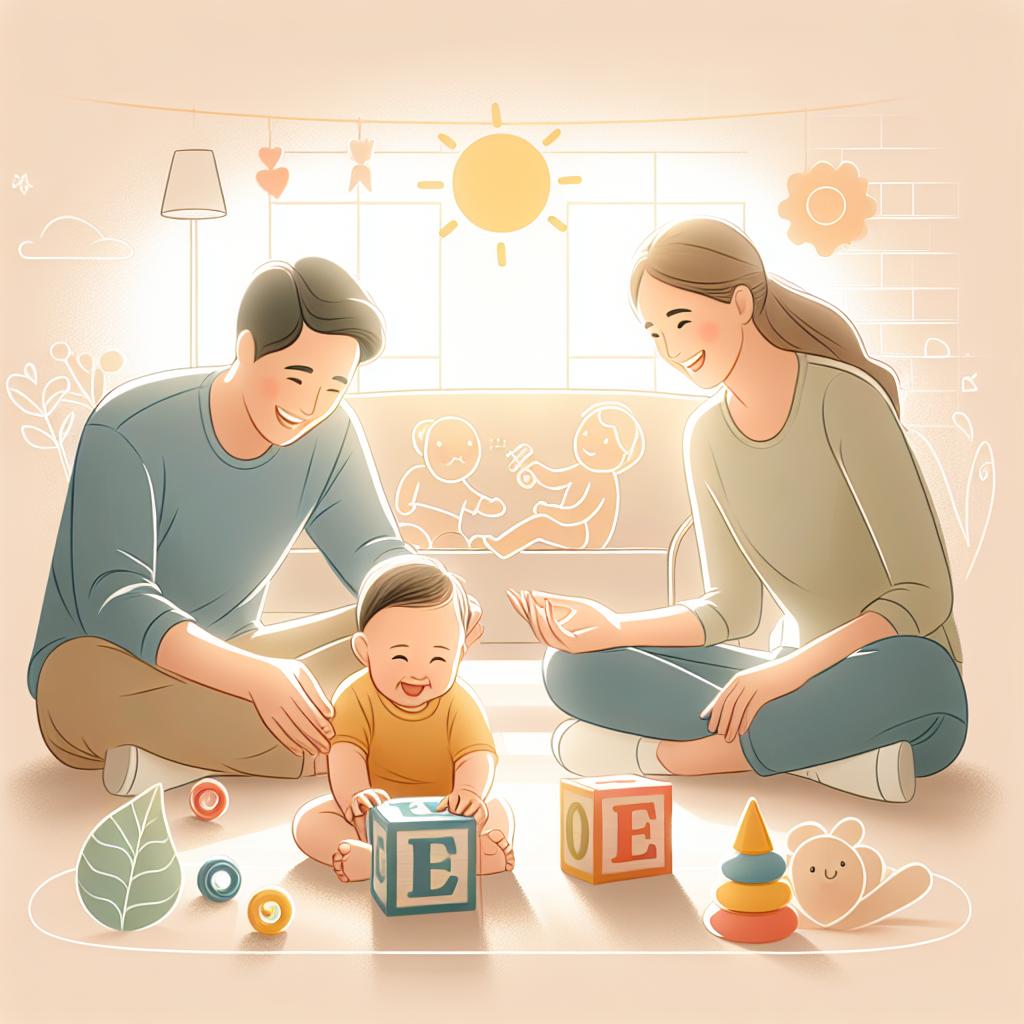Building Essential Connections for Baby Social Development
Understanding your baby’s social development is essential to helping them grow into a well-rounded child and, later, a successful adult. Through encouraging interactions and engaging in playtime activities, we can foster this critical aspect of growth. But how exactly can we do this effectively?
Baby Social Development: Why it Matters
Before we dive into specific baby social development tips, let’s first outline the importance of healthy socialization. According to pediatric research, social development in early childhood influences the future emotional and cognitive well being of a child.
Babies start to develop social skills almost from birth. When your baby locks eyes with you and coos or smiles, they’re initiating a social connection. As they grow older, these budding interactions bloom into a deeper understanding of emotions, communication, and relationships.
Encouraging Interactions: Building Baby’s Social Skills
One of the best ways to stimulate your baby’s social growth is by encouraging interactions. These engagements might seem simple, but they are fundamental for teaching your little one about relationships, empathy, and communication.
Here are a few tips:
- Frequent Eye Contact: Making eye contact with your baby during feedings, diaper changes, and playtimes helps them recognize you as a source of love and support.
- Talk and Sing: Speaking and singing to your baby instills a love for language and develops listening skills.
- Interactive Play: According to pediatric studies, playtime activities like peek-a-boo or puppet shows can encourage social-emotional development.
Building Relationships: The Role of Consistency
In addition to encouraging interactions, establishing consistent routines can significantly aid in your baby’s social development. Familiar routines and schedules offer an environment where the baby feels secure and loved, making it easier for them to open up socially.
The Office of Head Start mentions that predictable routines help children understand the social and emotional aspects of daily life.
Deeper Bonds: The Magic of Multigenerational Connections
Another aspect of baby social development is building relationships beyond the immediate family circle. Inviting grandparents or older relatives into your child’s life can foster a love for stories, traditions, and wisdom that only age can bring.
Creating meaningful connections through grandparent bonding is a fantastic way to broaden your child’s social experiences. This article provides some wonderful insights on how to facilitate these bonds.
The Impact of Peers: Socializing with Other Children
Babies’ social development also depends on interactions with peers of the same age, such as siblings or friends. According to the National Association for the Education of Young Children, peer interactions are fundamental for learning social skills like sharing, taking turns, and dealing with conflict.
Playdates: Friendly playdates with other infants and toddlers help your baby explore and navigate social interactions. While it might be more ‘parallel play’ than actual cooperative play, it’s a critical stepping stone in their social development journey.
Storytime Sessions: Organizing or participating in group storytime sessions not only piques your child’s interest in reading but also allows them to observe and engage in social dynamics.
Parent-Child Play: Underscoring the Importance of Quality Time
Another key driver of baby’s social development is parent-child play. By engaging in entertaining activities, you are not only stimulating your baby’s mind but also enhancing their social-emotional skills. An article by Exchange Family Center vividly describes the benefits of such quality time.
Exploratory Play: Encourage your child to explore different toys, materials, and textures. This will foster curiosity, creativity, and motor skill development.
Guided Learning: Engage in play that teaches colors, shapes, or words. By doing so, you’re creating valuable opportunities for learning and bonding.
Sensory Play: Activities involving sensory stimuli can go a long way in enhancing your baby’s cognitive, linguistic, and coordination skills.
Instilling Social-Emotional Health: Understanding and Expressing Emotions
It’s critical to help children understand and express their emotions in a healthy way for positive social relationships. According to an extensive resource by NAEYC, encouraging your child to articulate their emotions will make them more empathetic and emotionally intelligent.
Identify Emotions: Show your baby different facial expressions and explain the emotions that accompany them. Empathize with your baby when they’re upset and celebrate with them when they’re happy.
Allow Expression: Encourage your child to express their emotions freely without fear of judgment. By doing so, you teach them that it’s okay to have emotions and express them.
Enriching Social Skills: Community Contributions
Lastly, community interactions play a significant role in enriching your baby’s social developments, like participating in community events or supporting local causes which provide opportunities for them to observe social norms and behaviours.
Regular visits to parks or play areas expose your little one to diverse social situations and dynamics, enhancing their understanding of social behaviors. And, according to CarePointe Academy, such experiences can be instrumental in fostering long-term social skills.
Now, let’s look forward to applying these methods in the real-time setting and nurture your baby’s social development precisely the way they need.
